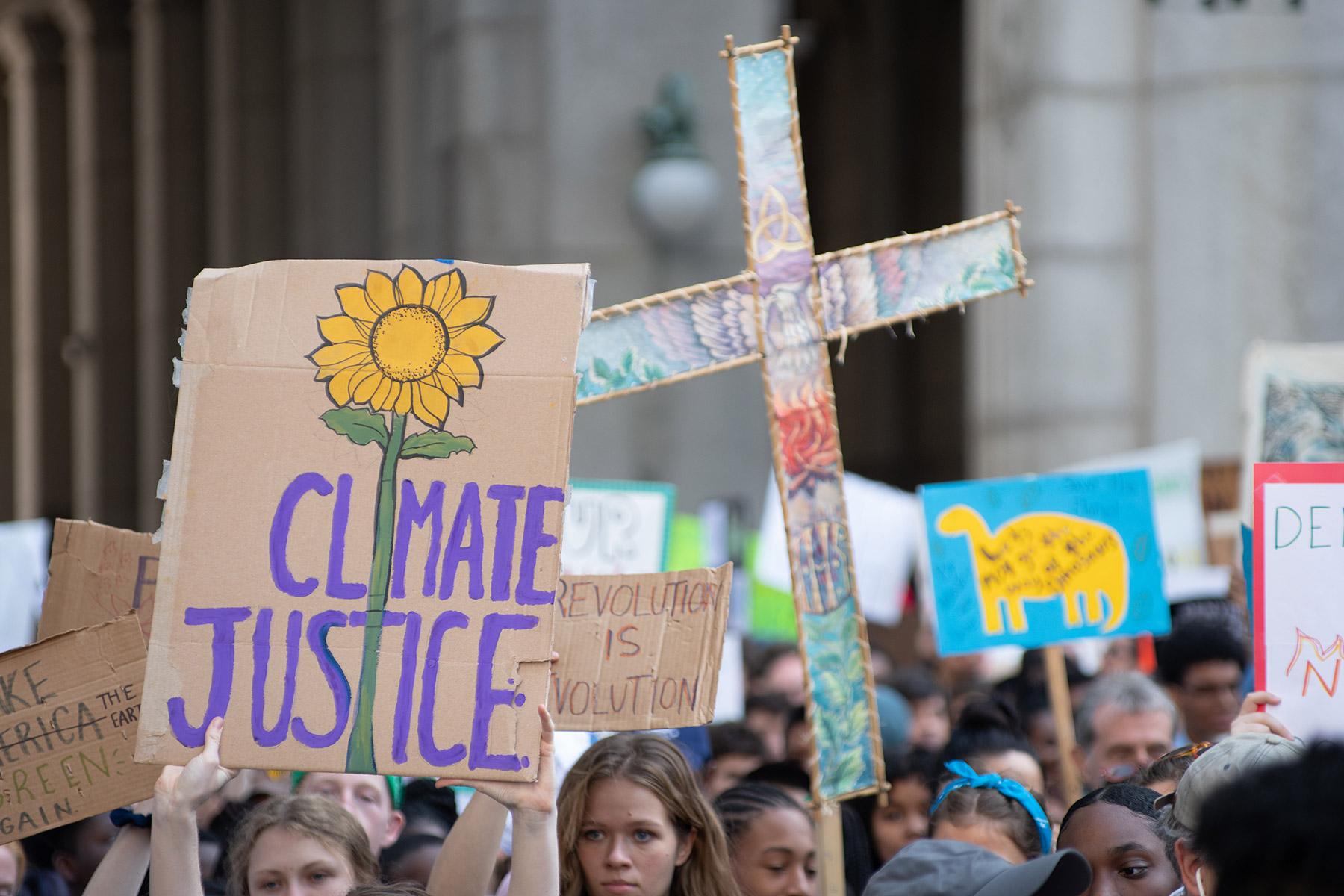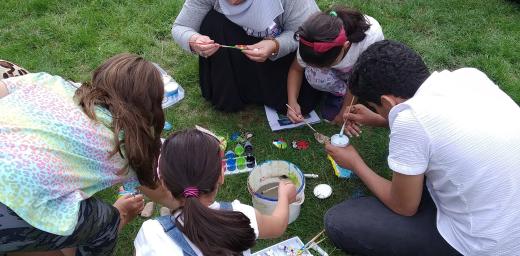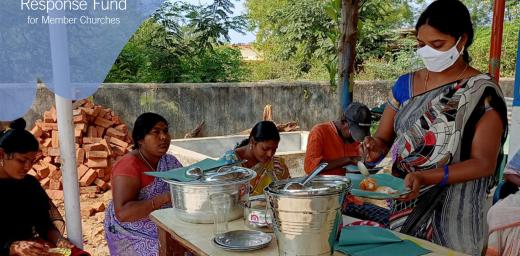Economy of life in a time of inequality

LWF, ACT, WCC and other ecumenical bodies joined tens of thousands in marching through the streets of New York City in the Climate Strike in 2019, demanding climate justice now. Photos: Simon Chambers/ACT
COVID-19 reveals unjust systems hidden in society
(LWI) - The Ecumenical School on Governance, Economics and Management for an Economy of Life (GEM School), a training program which integrates theological reflection, critical economic theory and social scientific insights, aims to equip participants with skills to strengthen churches’ advocacy for just transformation in the global financial and economic sectors offered a public webinar on Wednesday 19 August.
The “Economy of Life in the Time of Inequality, Pandemic and Climate Change” is the first of three public lectures for the 2020 GEM School. This webinar featured American Professor Cynthia Moe-Lobeda of Pacific Lutheran University and Rev. Dr Allan Aubrey Boesak a South African theologian and activist. The two theologians delivered lectures on the intersectionality of racial equality, environmental justice and economic justice in relation to the impact of the Coronavirus (COVID-19) pandemic.
“We are in the midst of four pandemics, and they are intertwined. The COVID pandemic has revealed more vividly the pandemics of economic injustice, racism, and climate change, said Moe-Lobeda in her lecture.
Moe-Lobeda presented “four conclusions on embodying Christ’s love in the midst of these intertwining pandemics":
- Seeking to address one of these pandemics without attention to the others is dangerous.
- The four pandemics converge in a holy calling to radical economic restructuring.
- This face of Christ’s love, the movement toward more equitable and ecological forms of life, is not an impossible dream.
- Religion has a crucial role to play. Religious communities can insist that economic and financial policies and practices are moral matters because they determine human’s relationships with others and creation.
Reiterating the revealing of inequalities, Boesak said “there is a strange contradiction with COVID that has exposed, in a merciless and fairly ruthless stature, all of the long existing inequalities entrenched in our societies. It is exposing fault lines that have been with us since the beginning.”
Offering “spiritual empowerment, encouragement, and comfort” is a given for churches, Boesak said, but offering “‘thoughts and prayers’ are for unimaginative politicians who have run out of platitudes,” he said, in calling the churches to action. “We should find ways to join the ongoing revolution.”
Boesak asked what side of the revolution the church would be?
“People of faith are anchored in a way that we do not even begin to understand how powerful that really is. Our spirituality of politics should subvert it [unjust society] and challenge it, until it conforms to the norms of the Kingdom of God,” he concluded.
The GEM School which previously met in person for a 10-day session, is a joint initiative by the Lutheran World Federation, the World Communion of Reformed Churches, the Council for World Mission and the World Council of Churches. The 2020 GEM School, affected by the COVID-19 pandemic, moved the venue to an online setting which allows public attendance, this year.
“We live in a unique time where we can see the impact of the dehumanizing and deadly damaging aspects of the current economic system not only from a distance, but in a deeply personal way. I am inspired by the commitment of the GEM School participants who show no signs of surrendering to despair – they are ready to learn and more importantly, to act,” said Rev. Dr Sivin Kit, LWF Program Executive for Public Theology and Interreligious Relations. The seminars were inspired by the outcomes of the “Sao Paulo Statement: International Financial Transformation for an Economy of Life” and the document “Economy of Life for All Now: An Ecumenical Action Plan for a New International Financial and Economic Architecture.”
Other 2020 GEM School public webinars scheduled for September entitled “Zacchaeus Tax and Jubilee in a Time of Pandemic and Climate Change” and in October "Interfaith Perspectives on Just Finance and Reparations.”
Philip Tanis, Executive Secretary for Communications & Operations for the World Communion of Reformed Churches contributed to this story.





